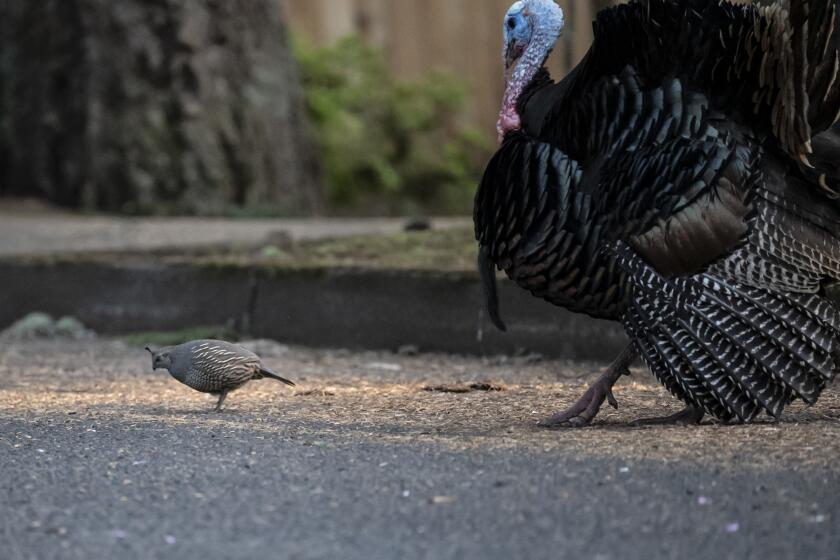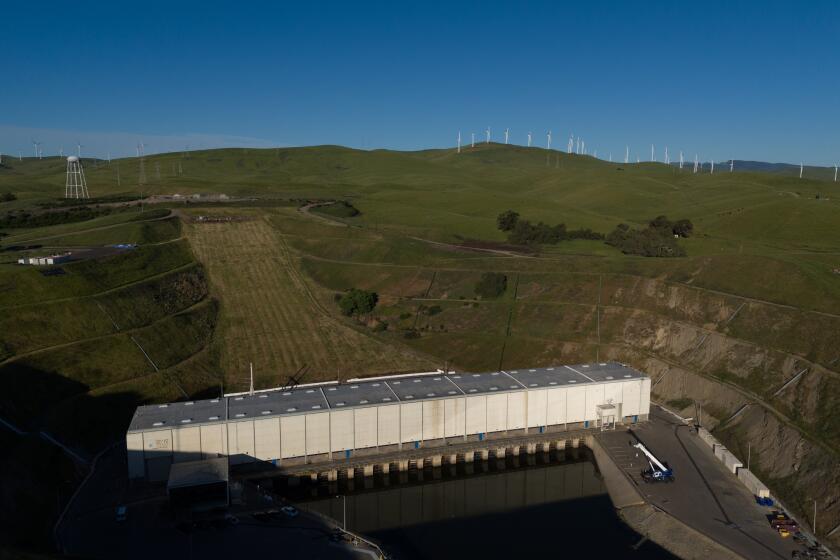Throwback Winegrower Works the Land With Love and Horses
There is no formal marker. Only a bare spot in the grass outside the corral indicates the grave where Curly, a muscular Belgian draft horse, rests on this farm that gave him love and purpose.
There is a story in this, as much about the animal as about Charles Richard, who brought Curly here to what is probably the only vineyard-winery in America still using horses to do basic farm chores.
Curly died last year from injuries suffered after he broke through a fence and tumbled down a hill onto Dry Creek Road, where a passing neighbor found him in pain. Rowdy, the other Belgian in the farm’s work tandem, cried all night, and Richard moved a cot into the barn to sleep with him.
In a way, Richard, who grows the grapes and makes the wine at Bellerose Vineyard, has never recovered. A new, borrowed horse uses Curly’s harness, but it’s not the same.
Worked Beautifully Together
Richard keeps talking about “the boys”--Curly and Rowdy--and how they worked so beautifully together. “It has been very hard on me, losing Curly,” he said.
Richard, 51, is clearly a throwback. With the advent of tractors and larger farms, draft horses became an anachronism in U.S. agriculture. Outside of the Amish and some other Mennonite communities, most of today’s farm power comes from oil wells.
“There’s a certain romance about the use of horses, I have to admit,” Richard said. “I’m not wanting to turn back the hands of time. It’s just that half of me wants to have been born in the last century. . . . We have to give the tractor justice as its due, but this is a different world entirely that says a lot to me. I use horses because it is a good thing to do.”
Richard is talking about a spiritual side of farming that goes well beyond the contemporary bottom line, a sense that the farmer is far more than a businessman. It is about the stewardship and care and environmental renewal described eloquently by Wendell Berry, the Kentucky farmer-poet who is one of Richard’s heroes.
“We were impressed by the spirit of hard work of the people who had been here before us,” Richard said. “I feel very strongly that I follow in the footsteps of these people. I see myself as a caretaker, not of a mere vineyard, not of a mere winery, but of land that someday will be farmed by someone else. I’m interested in farming the land, in the art of farming.”
Horses Were No Sacrifice
When Richard and his wife, Nancy, who helps with the winery business, bought their 72 acres 10 years ago, Richard realized that the size of the farm was appropriate for the draft horse. Richard was sacrificing nothing--as a beginning farmer, he had never driven a tractor until he came to Bellerose.
Today the farm grows part of the horses’ feed, and they work for their board, pulling mowers and other machines and helping in the harvest by hauling the hand-picked grapes to the crusher.
Their mobility and footing give them an edge over tractors on the steep slopes. Their manure returns to the land as fertilizer. They are gentler with soil than tractors, and their pace gives Richard time to be contemplative about his work.
“Wendell called himself a misfit, said there is no balance in our modern world. Well, that’s my situation. This is the 20th Century, and I don’t have the help they had in the old days,” Richard said. “What’s been hard is that guys like me don’t have access to the old support systems. When I break down, I can’t go to a neighbor for help.



